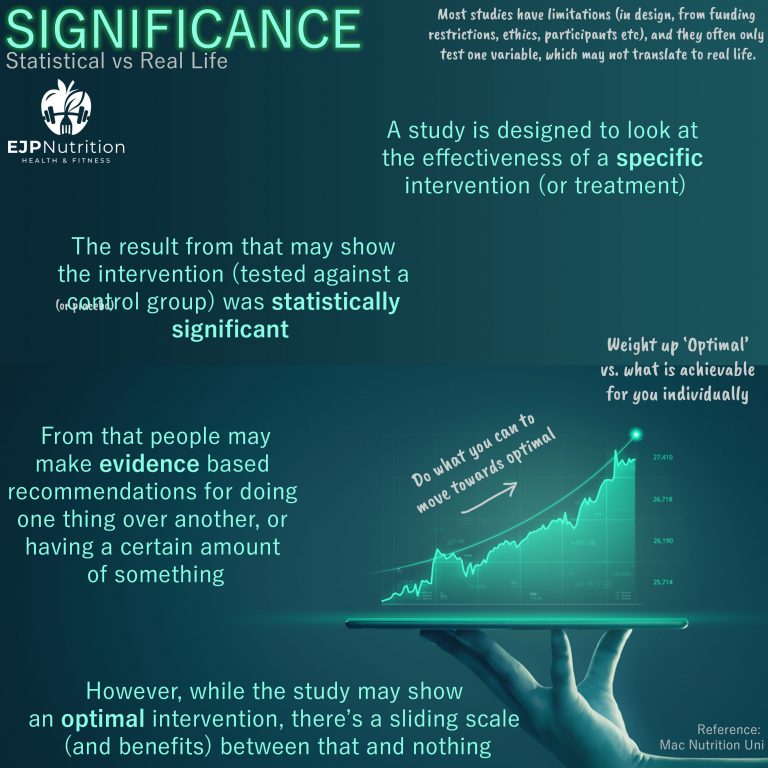Statistical significance in a scientific study is the marker used to show the results were unlikely to have happened by chance. But in science nothing is ever really proven! It’s also always evolving with new research and new methods.
Herein confusion arises. Especially when articles use sensationalised (click-bait!) headlines. These may or may not accurately represent the actual data.
The other thing to consider is one new study doesn’t necessarily mean we disregard the body of evidence on a specific matter. It’s another piece to the puzzle and adds more knowledge to that area. As science progresses some studies will debunk older research or commonly assumed practices. In those instances then yes the new study will supersede previous conclusions. Complicated isn’t it!
This is why being able to understand research (and not just looking at the aforementioned overblown headlines, or cherry picked parts of a study to fit someone’s narrative) is so important.
If someone makes a claim the onus is on them to be able to back it up. If something doesn’t sound right ask for references. You can then check to see if they back up what the person is saying.
Evidence
Research often looks at the mechanisms of how things work, or for where things can’t be optimised. But there’s a difference between what has statistical significance and what will actually make a real life difference for you as an individual.
Research looks at the bigger picture. How we can apply that to fit in to your personal lifestyle and to reach your goals is where a practitioner can help.
For example the optimal number of protein feedings for maximal muscle gains is 4-6/day. While that is the optimal, if you eat 3 meals a day (with enough quality protein, and leucine) in each, will it make that much difference to 4? Probably not. For that extra point of a percentile (bodybuilders 👀) then yes you’d want the absolute best plan. But for most of us and the setup of our daily lives if 3 meals fits better into your schedule (it does for me personally) then you can still make great progress and real life results.
Ref: Mac Nutrition Uni, Stark et al 2012
(Reposted from Instagram)


